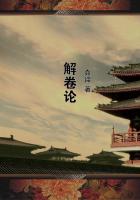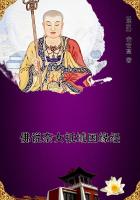The presidency was obviously modeled after the governorship of the individual States, and yet the incumbent was to be at the head of the Thirteen States. Rufus King is frequently quoted to the effect that the men of that time had been accustomed to considering themselves subjects of the British king. Even at the time of the Convention there is good evidence to show that some of the members were still agitating the desirability of establishing a monarchy in the United States. It was a common rumor that a son of George III was to be invited to come over, and there is reason to believe that only a few months before the Convention met Prince Henry of Prussia was approached by prominent people in this country to see if he could be induced to accept the headship of the States, that is, to become the king of the United States. The members of the Convention evidently thought that they were establishing something like a monarchy. As Randolph said, the people would see "the form at least of a little monarch," and they did not want him to have despotic powers. When the sessions were over, a lady asked Franklin:
"Well, Doctor, what have we got, a republic or a monarchy?" "A republic," replied the doctor, "if you can keep it."
The increase of powers accruing to the executive office necessitated placing a corresponding check upon the exercise of those powers. The obvious method was to render the executive subject to impeachment, and it was also readily agreed that his veto might be overruled by a two-thirds vote of Congress; but some further safeguards were necessary, and the whole question accordingly turned upon the method of his election and the length of his term. In the course of the proceedings of the Convention, at several different times, the members voted in favor of an appointment by the national legislature, but they also voted against it. Once they voted for a system of electors chosen by the State legislatures and twice they voted against such a system. Three times they voted to reconsider the whole question.
It is no wonder that Gerry should say: "We seem to be entirely at a loss."
So it came to the end of August, with most of the other matters disposed of and with the patience of the delegates worn out by the long strain of four weeks' close application. During the discussions it had become apparent to every one that an election of the President by the people would give a decided advantage to the large States, so that again there was arising the divergence between the large and small States. In order to hasten matters to a conclusion, this and all other vexing details upon which the Convention could not agree were turned over to a committee made up of a member from each State. It was this committee which pointed the way to a compromise by which the choice of the executive was to be entrusted to electors chosen in each State as its legislature might direct. The electors were to be equal in number to the State's representation in Congress, including both senators and representatives, and in each State they were to meet and to vote for two persons, one of whom should not be an inhabitant of that State. The votes were to be listed and sent to Congress, and the person who had received the greatest number of votes was to be President, provided such a number was a majority of all the electors. In case of a tie the Senate was to choose between the candidates and, if no one had a majority, the Senate was to elect "from the five highest on the list."
This method of voting would have given the large States a decided advantage, of course, in that they would appoint the greater number of electors, but it was not believed that this system would ordinarily result in a majority of votes being cast for one man. Apparently no one anticipated the formation of political parties which would concentrate the votes upon one or another candidate. It was rather expected that in the great majority of cases--"nineteen times in twenty," one of the delegates said--there would be several candidates and that the selection from those candidates would fall to the Senate, in which all the States were equally represented and the small States were in the majority. But since the Senate shared so many powers with the executive, it seemed better to transfer the right of "eventual election" to the House of Representatives, where each State was still to have but one vote. Had this scheme worked as the designers expected, the interests of large States and small States would have been reconciled, since in effect the large States would name the candidates and, "nineteen times in twenty," the small States would choose from among them.















